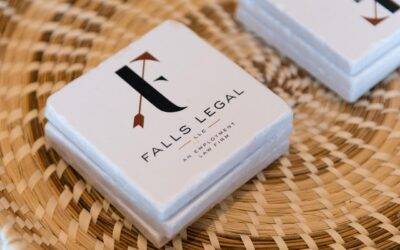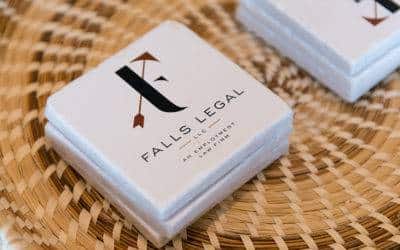SERVERS AND TIPPED EMPLOYEES
Recover Your Owed Tips, Minimum Wages, and Overtime Pay
Charleston is regularly cited as one of America’s best food cities. Our food and beverage industry is fueled by Charleston’s vast tourism industry. Unfortunately, many of our restaurants have been cited by the Department of Labor for failing to pay wages correctly and there have been many high-profile wage and hour cases filed in our courts. The attorneys at Falls Legal have handled many of these class action restaurant cases on behalf of servers and bartenders.
Some of the illegal practices that restaurant employers use to avoid paying servers and tipped employees their owed wages include:
- Non-Tipped Work and Excessive Amounts of Non-Tipped Work: Courts in South Carolina have held that it is illegal to require a tipped employee to perform non-tipped work while paying the employee the sub-minimum server wage (normally, $2.13 per hour). For example, an employer may require tipped employees to spend hours cleaning, sweeping, mopping, washing dishes, rolling silverware, and cleaning bathrooms. When such non-tipped work is performed, or where employees spend more than 20% of their time performing general preparation work, maintenance, opening or closing duties, no tip credit may be taken for the time spent in such duties. Instead, the full minimum wage ($7.25 per hour) should be paid to the employee.
- Keeping Employee Tips: When an employee is paid less than minimum wage or paid by a tip credit (generally, $2.13 per hour) the law forbids the employer (or restaurant owner or managers) from keeping any of the employee’s tips.
- Tip Pooling: Tip pooling arrangements are legal if they are structured correctly. However, many restaurants operate invalid tip pools. Tips can be shared between a server and anyone else who customarily serves patrons such as servers, bellhops, hosts/hostesses, bartenders, and busboys. However, servers and other tipped employees may not be required to share tips with back-of-the-house employees (or employees who do not customarily interact directly with the guests) including dishwashers, cooks, expeditors, chefs, and janitors. Additionally, supervisors and managers are not allowed to participate in tip pools.
- Paying for Customer Walk-Outs, Breakage, Uniforms, Etc.: When an employee is paid less than minimum wage by the tip credit (generally, $2.13 per hour), the law forbids employers from making tipped employees pay for customer walk-outs, breakage, uniforms, etc. Unfortunately, this is quite often a common practice in the food and beverage industry and most servers and bartenders are not aware that the practice is illegal. If you have been forced to pay for a customer walk-out out of your own tips or cash, you should contact Falls Legal immediately.
- Credit Card Fees: Where tips are charged on a credit card and the restaurant must pay the credit card company a percentage on each sale, the employer may charge the employee (and take out of his tips) the amount of the transaction percentage but only on the gratuity portion of the bill. However, this charge on the tip may not reduce the employee’s wage below the required minimum wage and may not exceed the exact amount charged by the credit card company. For example, if a credit card company charges a restaurant a 2.5% transaction fee the employer cannot deduct more than 2.5% from the gratuity portion of the bill from the employee’s tips. If the employer were to deduct 3.5%, for example, this would be a minimum wage violation.
- Meeting, Set-Up, or Clean-Up Time: Many restaurants require tipped employees to come to work early or stay late for meetings or to perform opening and closing job duties. Even though workers cannot make any tips during this time, these hours are paid at the tip credit rate (generally, $2.13 per hour). This may be illegal.
Charleston, South Carolina Tipped Employee Lawyers
The attorneys at Falls Legal have handled many restaurant cases on both a regional and national basis. We have helped servers and bartenders recover millions of dollars in unpaid minimum and overtime wages. If you work in the food and beverage industry and have experienced any of the issues described above, please contact us to see if we can help you recover the wages, tips, and other money you may be owed.
LATEST POSTS
Falls Legal Awarded First Tier Ranking on 2022 “Best Law Firms” List
Falls Legal, LLC, a law firm dedicated to representation of employees in employment law matters, received a First Tier ranking on the 2022 Best Law Firms List in Charleston for “Litigation – Labor & Employment” and “Employment Law – Individuals” issued by U.S....
Employee and Job Applicant Rights under the Fair Credit Reporting Act: Know Your Rights in the Employment Screening Process
Employment background check cases are becoming more common. The Fair Credit Reporting Act (or “FCRA”) governs the circumstances in which an employer may procure a “consumer report,” which the FCRA defines to include all criminal and financial background checks...
Falls Legal Attorneys Named to Best Lawyers in America® and Super Lawyers®
Falls Legal is pleased to announce that attorney J. Scott Falls has been named to The Best Lawyers in America® 2018 for Litigation – Labor & Employment. Best Lawyers, which is published annually in almost 70 countries, recognizes attorneys with significant...
CONNECT WITH US
125-E Wappoo Creek Dr.
Suite 102
Charleston, SC 29412
843.737.6040
info@falls-legal.com



